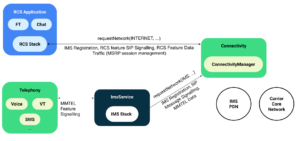Google’s algorithm for search engines will be coded regularly. But the brilliant guys in Search Engine Optimization (SEO) come up with queries that measure the working of the existing algorithm. In 2015, experts have come up with perspectives that beat all the rest that existed previously. The biggest concern is on the future of search.
Interestingly, many factors are likely to influence search in future. More so, the experience that internet users have. Readability, value, and mobile friendliness are some of the influencing factors. It has been predicted by experts some of the factors that pre-existed will remain unchanged. Other aspects like links that are paid are expected to have reduced influence. Influence was assessed based on level of search
Key word on the page
The description of this feature is based on the main word in sections of the code on the webpage. Using the appropriate title is the most important way to optimize on search. Although key words are useful in search, the relevancy of the page to the search question is more beneficial. Thus, such relevant pages will rank top on the list of available searches.
The key word on the website domain
This feature depends on the way the key phrase is used in the website domain and how it impacts on the rankings of search results. Much influence is achieved when there is an exact match.
Page-level and address link-based features
Description of this feature is how the webpage is ranked as determined by link metrics. Links that are of good quality will rank highly on searches. For this reason, brands are careful on how they choose their links. Contents that contain true information are expected to rank highly based on link metrics.
Domain-associated features involving the brand
Description of this feature is how quality is shown by elements present on the domain of the page. Due to integration of social media into real-time search results, is clear things will have a turnaround soon. Also, brand searches are specific. Google will, therefore, give the required brand content.
Page-associated social features
This description creates a link between social platform sources and third parties. Content with a number of interactions on social media will rank highly on searches. Popularity also plays a part in search rankings.
Features on page-associated keyword-agnostics
This description is based on non-link features on WebPages. Mobile WebPages are not as influential as they were previously. Also, it is possible for websites that have republished material to rank higher than websites with original content.
Domain associated link authority features
This is a description of the domain name that hosts the webpage. Linking domains in a manner that is of good quality ensure that performance on searches is good. Also, relevance has a role to play in high rankings.
Features on domain-associated key-agnostics
This is a description on the whole domain name. Though, it does not describe the link directly. Lengthiness of the domain influences how it ranks on searches but not so much compared to the major factors.
Conclusion
While it has been predicted that non-manipulative factors like anchor text will still b influential, it all depends on the factors that are being considered. Popularity is playing a big role in Google’s recognition and a there is a likelihood of apps taking over websites. There are many expected changes, some of which we are seeing now.







More Stories
How to Effectively Remove ChocoEukor from Your Android Device
dji pocket 3 vs. Competitors: Which Gaming Console Reigns Supreme.
High-Quality Collection of Animated Booting Gifs